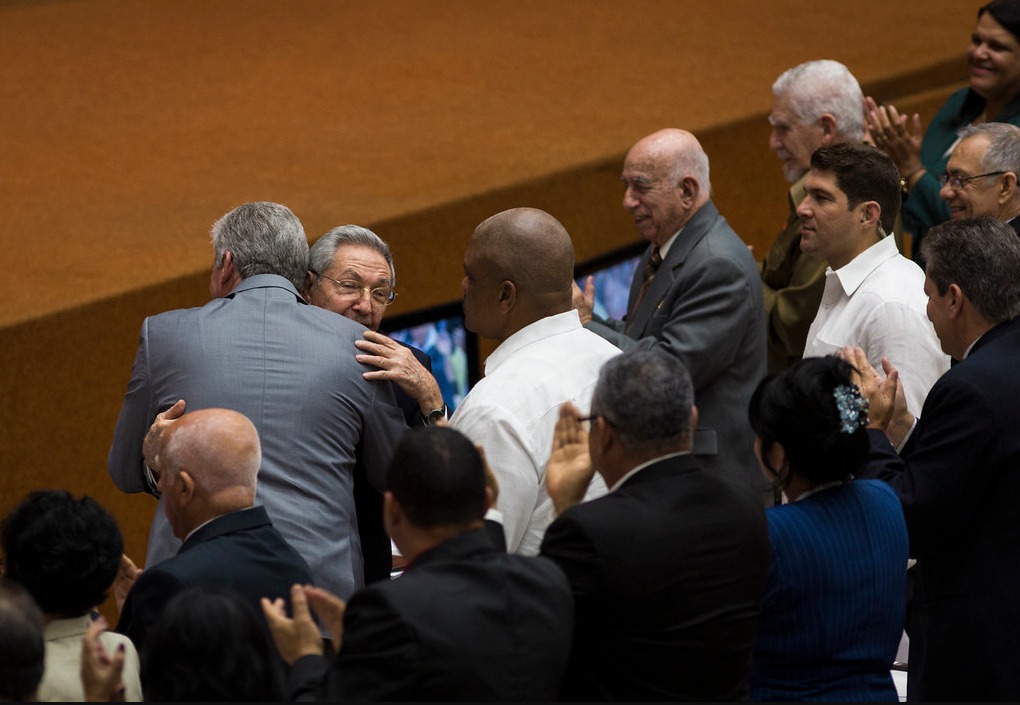Between April 16 and 19, the VIII Congress of the Communist Party of Cuba (PCC) was held at the Palace of Conventions in Havana. This is the five-annual meeting -not always held- of the most powerful organ of the island to examine the state of the country and elect new members for the Political Bureau and the Central Committee of the Party. For this year, the main novelty was the announced retirement of Raul Castro.
Although there was speculation about a possible delay of the decision, due to the serious crisis the island is going through, Raul Castro resigned from his post on the first day of the meeting, keeping his word and opening the possibility for changing the country’s direction. However, the following days showed that the die was cast and that Miguel Díaz-Canel, Raúl’s successor as First Secretary, would be in charge of guaranteeing continuity.
The headlines of the main global media outlets ranged from “a new era without Castro” to “Castro leaves, Castroism remains”. On the one hand, categorical expressions that augured winds of transformation and the possibility of a turnaround in the policy that has ruled the island since 1959. And on the other hand, expressions of continuity that made it clear that the imprint of 62 years of dictatorship would not be left behind just because of the departure of one of its patriarchs.
Although both headlines have some truth to them, the fact is that beyond the symbolism of the Castro surname, the changes made by Congress seek continuity. The hopes of millions of Cubans were dashed as the island’s nomenklatura showed signs of maintaining the road map that has so far led the island to the dramatic situation in which it finds itself, with long lines for supplies, an ever-increasing devaluation, a trade in foreign currency that sells to citizens who earn in national currency and a repressive wave against artists, activists and journalists.
In addition to the arrival of Miguel Díaz-Canel as First Secretary of the Communist Party of Cuba, the departure of Marino Murillo from the Political Bureau and the arrival of Luis Alberto Rodríguez López-Calleja stand out. The former, a representative figure of the economic reforms and the visible face of the economic order, and the latter, Raúl Castro’s son-in-law and Executive President of the business group of the Revolutionary Armed Forces (FAR), responsible for strategic sectors for the island such as tourism and hotels. Two changes that denote the political cost of bad decisions in economic matters, and Raul Castro’s supervision of the Party organ with a man of trust.
The Political Bureau is now composed of 14 members, of which only three are women, while the Central Committee reduced its number of members, with 88 leaving and 55 new members joining. This change, to a certain extent, implies a generational renewal, but in no way means a change in the road ahead.
An example of continuity is that of Humberto Lopez, host of the program Hacemos Cuba, who until now has been busy vilifying artists, activists and independent journalists in prime time on Cuban television and who is now rewarded with his incorporation into the Party’s organ. Everything seems to indicate that the demonstration of “revolutionary” skills such as censoring, persecuting, attacking or repressing citizens who freely demonstrate has a reward.
On the other hand, opposition demonstrations and citizen complaints are harshly repressed. This is the case of Luis Robles, the young man who demonstrated with a sign in rejection of the dictatorship and spent months in prison. Carrot for the “revolutionaries” and stick for the opponents and dissidents.
López’s case is not the only one. Mayra Arevich went from being the president of ETECSA -Telecommunications Company of Cuba- to become the new Minister of Telecommunications, and Jorge Luis Perdomo, who until now was in that position, became Vice Prime Minister. The former was promoted for making the telecommunications company available to block those who dissent from the regime and prevent their communications with the exterior; and the latter for promoting censorship and defending Decree Law 370 (known as the Azote Law) by means of which activists and journalists on the island have been persecuted, fined and sanctioned.
The messages are clear and the Party Congress has sent signals of continuity in its closed-door event. However, the militarization of Havana and the long supply lines are signs of a Party disconnected with the citizenry. While many were waiting for some sign of openness that would free up the economy and address devaluation, inflation and shortages, ordinary citizens, as journalist Yoani Sanchez points out, are beginning to see that the only way out is to “flee”. This is not a matter of weakness, but of hopelessness and resignation.
It only remains to hope that alternative expressions, unrest and social effervescence, such as the one recurrently experienced in the San Isidro neighborhood, will spread enough to pressure the dictatorship to change course. If there is to be a way out for Cuba, it is in the hands of the citizenry and not in the hands of an aging Party disconnected from reality.
*Translation from Spanish by Emmanuel Guerisoli
Photo by Cubadebate em Foter.com













